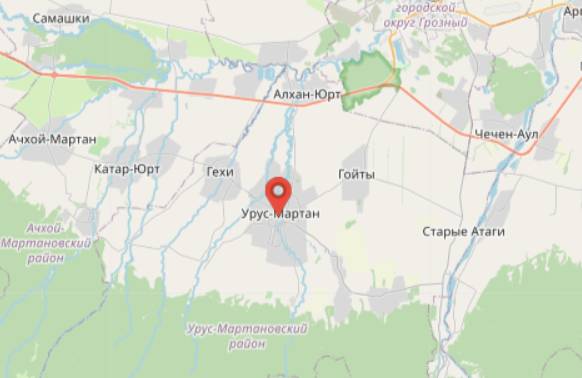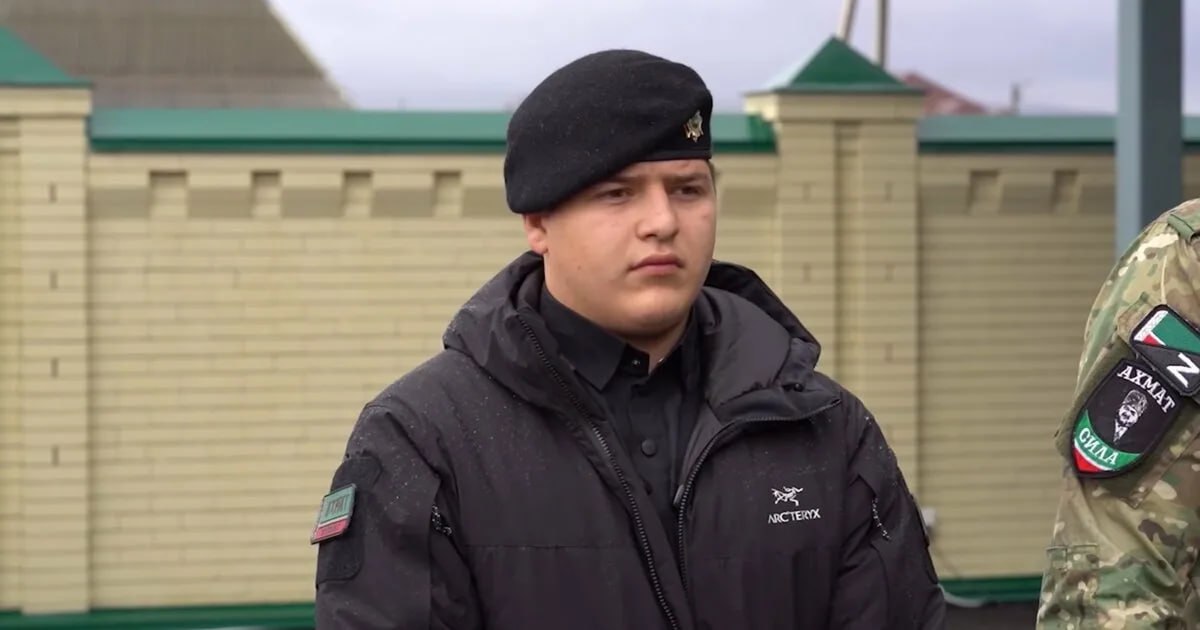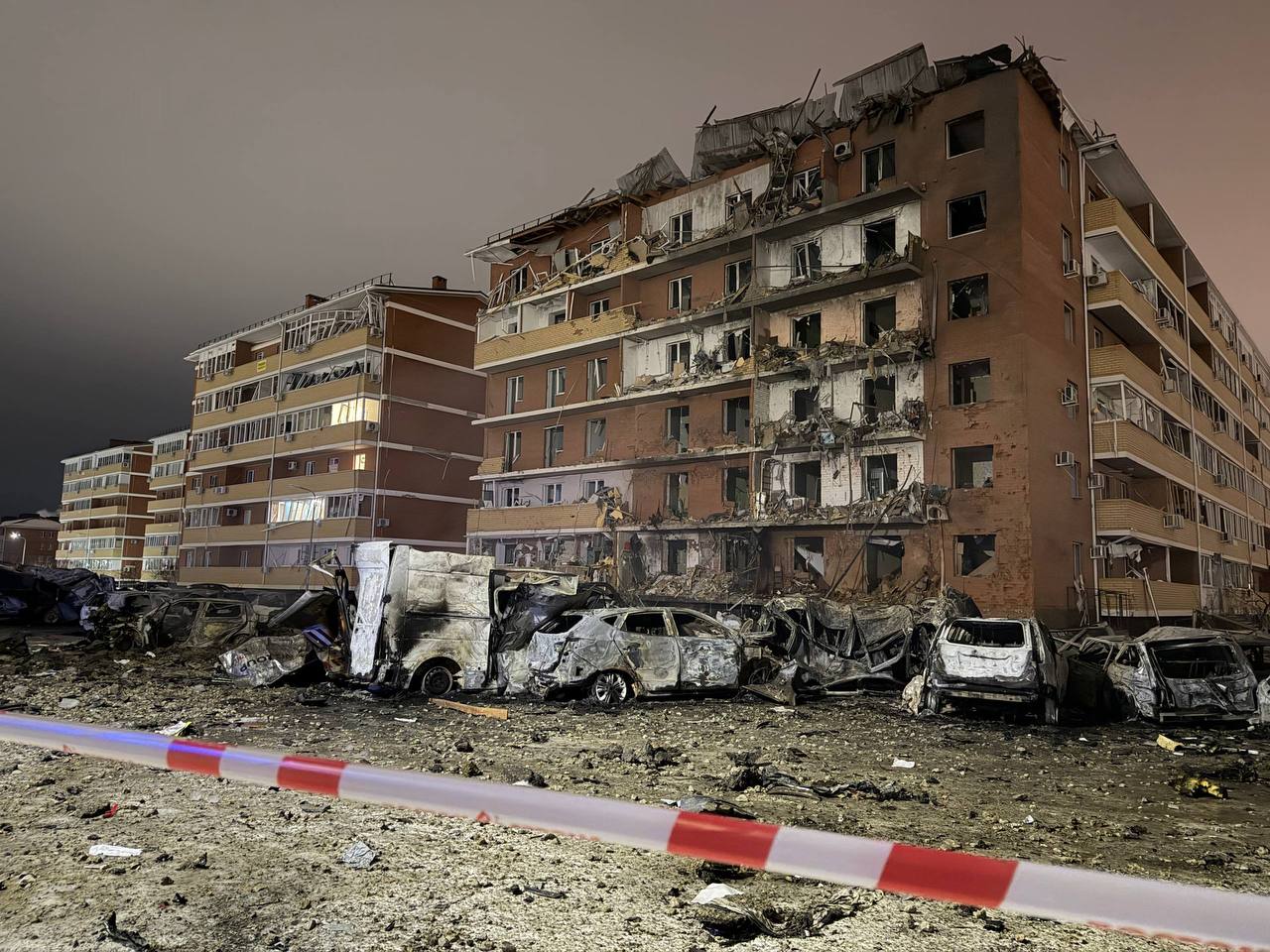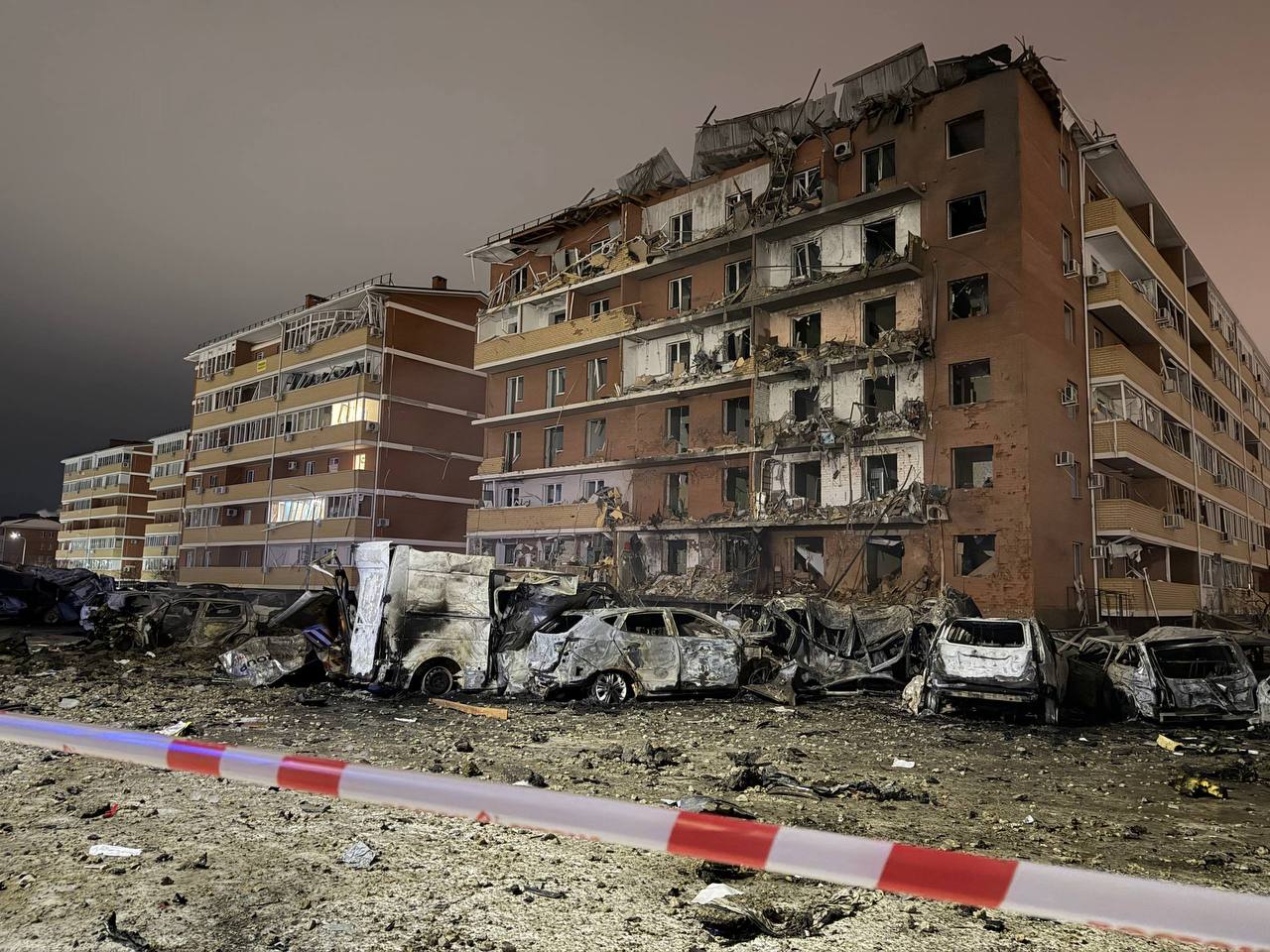The health of Adam Kadyrov, the son of Chechen leader Adam Kadyrov, who was injured in a traffic accident in Grozny, is improving, according to the Agency, citing sources close to the Russian presidential administration and the Chechen authorities.

September 19, 2001
***
At approximately 9 o'clock, Russian security forces entered the courtyard of house 3 on Gastello Street in Urus-Martan. Ordering everyone to remain in their places, they began a search. No production preview was shown. The “siloviks” did not want to introduce themselves, saying only that they served in the VOVD of the Urus-Martan district. In addition, it turned out to be impossible to determine the registration plates of the Ural and UAZ cars in which they arrived: on the first of them they were thoroughly covered with mud, and on the second they were completely absent.
The law enforcement officers told the surprised parents and relatives that they had to take fingerprints from the eighth grade students of secondary school No. 3, Ramzan Viktorovich Chankaev and Aslan Abdullaevich Chankaev, living in the house, both born in 1985. When asked to explain why specifically for minors, it was stated that there was an order for all men to undergo such a procedure, starting from the age of 14. The fingerprint laboratory is allegedly located on the territory of the “Azerbaijani market” within the city and they must be taken there.
Ramzan Chankaev's mother, Zainap, demanded that they provide their first, patronymic and last names. In response, apparently the senior in rank, began to shout, swear and insult her. But she said that she would not allow anyone to be taken away. Trying to intimidate, he began to shoot. Meanwhile, other “security officials” separated the woman from the teenagers, repeating all the time that they would be released in an hour. The “elder” also softened. “Let the fathers go with them,” he said. Zainap Chankaeva and the relatives who were in the yard and in the house calmed down and decided that they would not do anything to the teenagers. They were not even alarmed by the order given to the “senior” subordinates: to collect all the cartridges that were scattered around the yard during the shooting. The owners were satisfied with the explanation that this was being done for their own good, “so that later others would not start demanding weapons from you, from which there were shell casings left in the yard.”
The security forces put Ramzan and Aslan Chankaev into the car. Their fathers approached him, but the car started moving, leaving them standing in the street. Zainap Chankaeva lost consciousness and could not come to her senses for a long time. When it got better (about 5 p.m.), I went to the center of Urus-Martan, where all the power structures of the region are located in the boarding school building: the VOVD, the military commandant’s office and the FSB. There is also a temporary detention center where, most likely, the teenagers were placed. Hoping to pass it on, she took some groceries with her.
She met her husband and other relatives at the building. It was already known that the detainees were taken there: they were seen there by Chechens, employees of the Urus-Martan POM and the military commandant’s office. The incident was reported to the district administration. After consulting with her family, Zainap Chankaeva went to the prosecutor's office. There she was received by Radmir Abrekov. Praising her for immediately contacting them, he promised to sort everything out for her and left for the VOVD. Having returned from there together with a representative of the local government, he confirmed to his relatives: yes, indeed Ramzan and Aslan Chankaevs are in the temporary detention facility. According to them, the police are busy unloading humanitarian aid that arrived for them from somewhere in Russia. Once they're done, they'll take fingerprints and release both of them. As if to confirm this, they even allowed the transfer to be entered. The products were carried by Radmir Abrekov.
But they were not released either that day or much later. Law enforcement officers suddenly began to deny that they had detained anyone at all that day, and the teenagers disappeared. With a request to establish their whereabouts, Zainap Zholmarzaevna Chankaeva contacted the district prosecutor's office, the Urus-Martan military commandant's office and the government of the Chechen Republic.
On October 15, 2001, she received letter No. 1232, signed by Major General Heydar Hajiyev. It said, in particular: “In response to your statement dated September 29, 2001, I report the following: 1. Requests have been sent to the commanders of units of the RF Ministry of Defense and the Internal Troops of the RF Ministry of Internal Affairs regarding the substance of your application; 2. To resolve the issue of establishing the location of your son Chankaev Aslan Abdulaevich, born in 1985, you need to contact the police department and the VOVD of the Urus-Martan district of the Chechen Republic.”
From it one could conclude that, on the one hand, the military commandant is trying to imagine that the detention of the teenagers was carried out by some unknown armed people (otherwise why send requests to the commanders of the Defense Ministry and Internal Troops units stationed in the area?!), and, on the other hand, that some measures are being taken to find them. But even before the letter, Zainap Chankaeva was convinced that this was not the case.
On October 8, 2001, at about 10.30, she once again came to the boarding school. At that time, Heydar Gadzhiev and the head of the administration of the Urus-Martan district, Shirvani Yasaev, were standing there. Suddenly, the same “security officer” who opened fire in their yard came out of the gate and then ordered them to collect the spent cartridges. On his sleeve he now had a patch with three letters: “FSB.” The woman recognized him immediately. She approached him and asked where he had taken her son and relative. But he, without saying anything, walked away to the Ural car standing next to him.
Zainap Chankayeva approached Heydar Gadzhiev and Shirvani Yasaev and said, pointing to the “silovik”, that it was he who supervised the detention of the teenagers, and asked to force them to be released. However, by order of the general, she herself was expelled from the territory of the commandant’s office. The head of the district administration did not say a word of support either. This behavior of government officials came as a complete surprise to her. She started screaming, demanding that the criminal who took her son not be released. People on the square in front of the boarding school began to approach. At that moment, the woman had a heart attack and fell to the ground. The military lifted her into a UAZ car and, taking her to the Urus-Martan regional hospital, left her in the waiting room. At the insistence of the doctors, she spent three days there.
Subsequently, Zainap Chankaeva saw and identified two more participants in the abduction of teenagers. They were leaving the courtyard of the boarding school, where, apparently, they worked. But, knowing that no one would help her and no one was going to detain them, she silently watched them go. And one day I couldn’t stand it. That day, a familiar “silovik” appeared at the city market, accompanied by two security guards, and walked down the aisles, making purchases. The woman approached him, smiled and, as affectionately as she could, asked him what his name was. “Vitaly,” he answered briefly. But apart from this, nothing more could be found out.
She then saw “Vitaly” more than once: he left the boarding school yard, accompanied by his bodyguards. Appeared on the market several times.
Since the district authorities did not report where the teenagers were being held, Zainap Chankaeva appealed to the Urus-Martan City Court. But he did nothing to establish the whereabouts of the abducted people and punish those responsible for committing this crime. On October 18, 2001, the family of the kidnapped eighth-graders contacted V. Kalamanov’s bureau.
As of the spring of 2002, the whereabouts of Aslan and Ramzan Chankaev had not been established. From the available information it follows that, firstly, they were detained by employees of the regional department of the Federal Security Service of the Russian Federation for the Chechen Republic and, secondly, they were taken to the temporary detention center at the district VOVD. But, most importantly, the names of those who took the teenagers away, as well as their further fate - all this, without a doubt, was known to the heads of the regional security forces and, first of all, to the military commandant, Major General Heydar Gadzhiev.
Based on the fact of the abduction (Article 126 Part 2 of the Criminal Code of the Russian Federation) of two teenagers on October 27, 2001, the prosecutor's office of the Urus-Martan district opened criminal case No. 25137. On a completely far-fetched pretext, “due to the impossibility of identifying the persons subject to prosecution” (Article 195, paragraph 3 of the Code of Criminal Procedure of the RSFSR), it was suspended on December 27. Due to numerous appeals from relatives, on April 25, 2002, the prosecutor's office of the republic was forced to cancel this resolution. Nothing is known about the further progress of the investigation of the Human Rights Center “Memorial”.
***
The “cleansing” of the village of Mayrtup began. Early in the morning, on the territory of the cemetery, located on the outskirts of the village and adjacent to the regional center, the Russian military detained five young people who were digging a grave. A local resident, an employee of V. Kalamanov’s bureau, Zhanati (Zhanna) Baudinovna Ustarkhanova (by her husband, Khazbulatova), managed to free them. Several more people were taken from their homes. They were also released: some a few hours later, and some the next day.
On September 20, the military captured 18 cattle workers from a local livestock farm. Among them were old people who had reached 60 years of age. A day later they were released too. In total, 28 people were detained in Mayrtup. Most were released after the intervention of the head of the village administration and Zhanati Ustarkhanova. However, relatives still had to ransom three villagers for money.
The “cleansing” lasted two days. During this time, 11 families were robbed. The victims filed a complaint with the leaders of the operation: Rudenko, the commander of the Mongoose unit based in the village of Khankala, and a certain Radimbaev, who led the military personnel of the unit stationed near the city of Shali. Promising to compensate for the damage caused, the officers invited them to come the next day to a field outside the village, where they would allegedly take possible robbers for identification. On September 21, the affected residents of Mayrtup arrived at the indicated location, but the military was not found there. Having completed the operation, they had already left for their bases.
From the book “People Live Here”, Usam Baysaev, Dmitry Grushkin, 2006.



